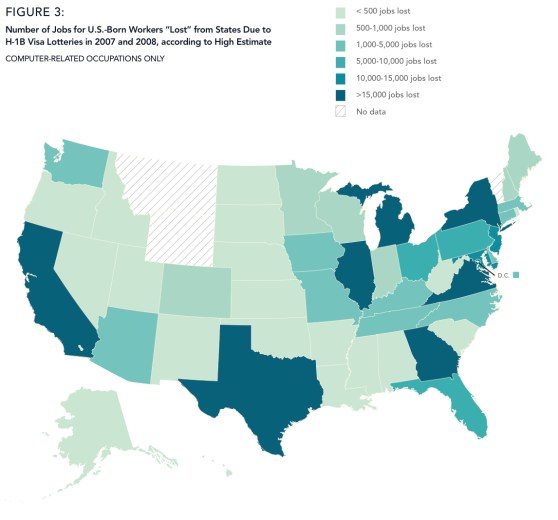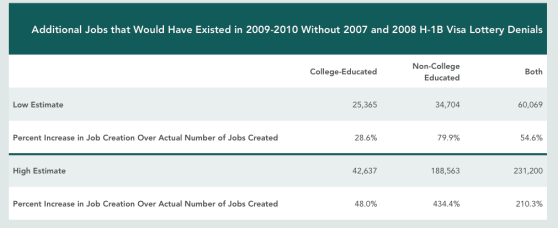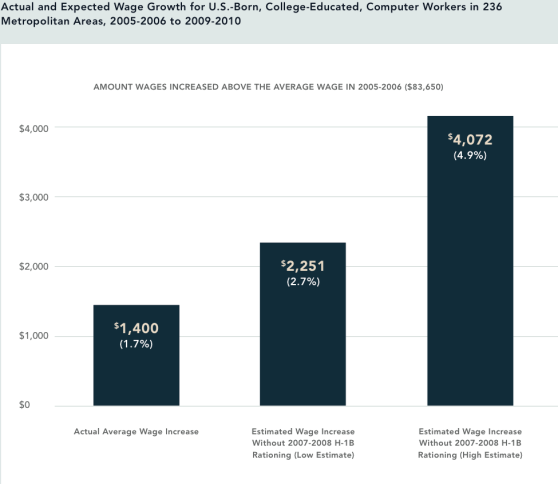A new report published this week finds that Congress’ inability to pass immigration reform is screwing over American workers — both in terms of wages and employment.
“The hundreds of thousands of jobs — and millions more in wages — that could have been created for U.S.-born workers in the absence of the H-1B visa lotteries represent much more than just well-paid positions and professional opportunities for tens of thousands of American families,” concludes a report by a team of economists, including University of California Davis Economics Professor Giovanni Peri. The report was written for the pro-reform group, The Partnership for a New American Economy.
A representative from the AFL-CIO called the tech industry “greedy” for promoting a law allows companies to hire immigrants without a 90-day working period, but this new report shows that Americans and immigrants are not tied in a zero-sum battle.
The crux of the argument relies on the fact that the US consistently maxes out its current allotment of high-skilled visas (mostly the highly sought-after H1-Bs) in days.
Here are the results, in 3 visuals:
Cities lose out on jobs
“Our low estimate predicts that by 2009-2010, the 2007 and 2008 H-1B visa lotteries had caused U.S. metropolitan areas to miss out on creating roughly 60,000 new jobs for U.S.-born IT workers. Our higher estimate, however, predicts that the H-1B lotteries cost city-based U.S.-born tech workers as many as 231,200 new jobs during that period—a figure more than three times higher than the actual number of new jobs created for those workers during that time frame,” explains the report.
Tech firms scale back
High skilled immigrants are associated with job growth. When immigration is scaled back, so too is the tech sector’s growth and subsequent jobs.
“A sudden decrease in the supply of H-1B workers would lead computer-related firms to grow more slowly in the coming years and potentially scale back their ambitions in the more immediate term… specifically, we found that every time a city experienced a 1 percent shock in the available supply of computer workers (as a result of the H-1B visa lotteries in 2007 and 2008), the growth in the number of jobs available for non-college educated, U.S.-born workers slowed as much as 7.1 percent between the 2005-2006 and 2009-2010 time periods,” concludes the report.
Wage growth slows
Job growth is often associated with wage growth, since demand also increases the need for more high paying jobs and the services those new works purchases. “Instead of growing 1.7 percent during that time, the presence of the 178,000 rejected H-1B workers would have raised wages by as much as 4.9 percent, meaning higher pay for more than a million American families,” concludes the report.
No Reform Likely
Unfortunately, immigration reform has little chance this year. If immigration reform ends up dead next year, there’s a chance high-skilled reform (and more visas) could be spin-off and be passed separately. But, we don’t know how likely that is until after this year’s election.





